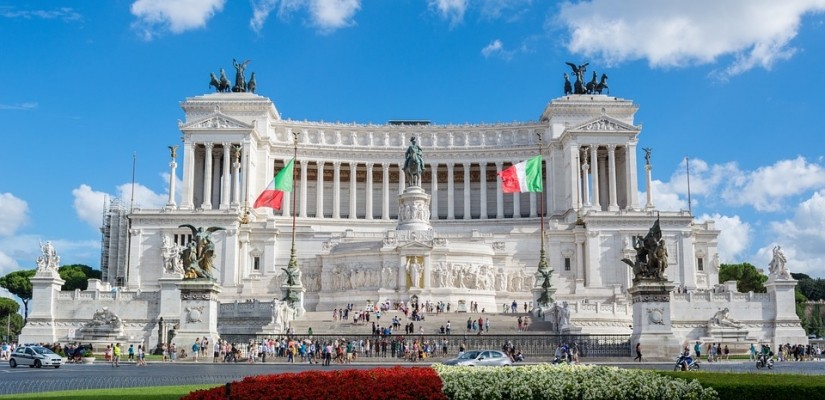The Belt and Road Initiative (BRI), also known as One Belt One Road, was launched in 2013 under China’s President Xi Jinping. It is a global infrastructure project intended to link China with countries in Asia, Africa, the Middle East, and Europe through both a land route, the Silk Road Economic Belt, and a maritime route, the Maritime Silk Road. The central idea is that a series of railroads, tunnels, shipping lanes, ports, and gas pipelines will create a far-reaching network to enhance global economic mobility and cooperation. In early 2019, Italy joined the long list of China’s international trading and investment partners. As the world’s 8th biggest economy in nominal GDP, Italy ranks among the largest economies to tap into the BRI and constitutes an important European strategic partner for China. Italy is also the first member state of the G7 to cooperate with China on this project. A memorandum of understanding was signed between President Xi Jinping and Italian Prime Minister Giuseppe Conte on March 23, 2019. The document is not legally binding, however, which does allow Italy to withdraw from the project in the future.
Italy’s current governing coalition is divided on the BRI agreement. The Five Star Movement (M5S) party can be regarded as the driver of this engagement with China as a means to reinvigorate Italy’s struggling economy. Since 2001, Italy’s average GDP growth rate has been 0.25%, far below the EU average of 0.7%. The 2.5 billion Euro (2.8 billion USD) deal with China is intended to alleviate this problem. The M5S argues that this agreement will construct a bridge to Asia and that it thus falls in line with the EU’s strategy to seek economic affiliation with Asia. In contrast, the Northern League party favors relations with the United States over China and views the connection with China as a threat to Italian national security.
In contrast to positive economic outlooks, Italy could also harm its reputation in the eyes of skeptical Western powers, particularly France, Germany, or the United States, which is currently engaging in a trade war with China. In addition, critics maintain that the Chinese government offers economic partnership while at the same time taking strategic control of international markets. Skeptics further suggest that Chinese businesses will be given the opportunity to buy into the markets of BRI allies and take over. Thus, entering this partnership may prove to be more beneficial for Beijing than for Rome.

As the largest haven for foreign direct investment in the world, the EU bloc is an attractive economic partner for China’s ambitious BRI project. Countries within the EU, however, are in disagreement over how to approach trade and investment opportunities with China. France and Germany advocate stricter monitoring measures of China’s investments in the EU, and the two countries both voted in favor of an EU-wide mechanism to review third-country investments in a European Commission session in early 2019. Italy abstained from this vote during the session. Greece and Portugal take a different position than France and Germany, and support Beijing’s infrastructure project. The two countries joined the BRI in August 2018 and January 2019, respectively.
One EU concern may be that Greece’s largest seaport, the Port of Piraeus, is now largely in the hands of the China Ocean Shipping Company (COSCO), a Chinese state-owned business. Furthermore, the European Union and the United States fear that Italy will surrender details of critical technologies such as AI or robotics as well as infrastructure to China. With its strong emphasis on unified decision-making in the face of joint engagement with international partners, the EU is likely to frown upon Italy’s independent decision. This situation will be exacerbated since China’s style of political governance and economic capabilities are an antipole of Europe’s political and economic power. As a result, Italy may have to justify this move to its EU and NATO allies despite its right to autonomous decision-making as a sovereign state.
For China, Italy’s entrance into the BRI is a successful advancement of China’s strategy to become a global leader. Beijing’s strategy involves giving out loans with high interest rates to BRI host countries which may not be able to pay them back, as was the case in Sri Lanka. The South Asian state was not able to repay its debt and it subsequently leased Magampura Mahinda Rajapaksa Port to China in a debt-for-equity deal in 2017.
Italy as the newest addition to the BRI group is strategically interesting to China because it represents a gateway into Europe. China’s plans include extending its reach along the Adriatic coast from ports in Rijeka in Croatia, to Koper in Slovenia and to Trieste, Venice, and Ravenna in Italy. Such an expansion of China’s power is what skeptical European authorities in Brussel anticipate as a threat to the European market. More rigorous screening of foreign investment is their reaction to this development.
